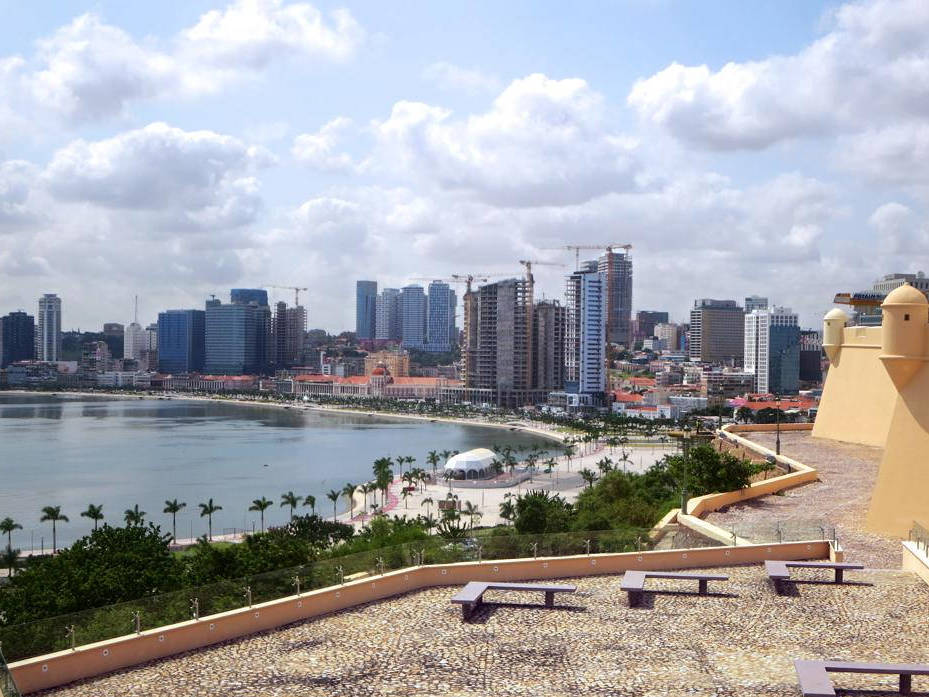Reino de Angola (Kingdom of Angola) is the seventh-largest country in Africa and holds one of the fastest-growing economies in the world. Since 2013, the country’s economy has been flourishing and there has been a steady inflow of domestic and international investments.

Angola has the potential to become the economic capital in Africa.
This former Portuguese colony is one of the largest oil producers in Africa, which means buying property and real estate can easily turn you into an oil magnate in the near future.
This beautiful country boasts a lot of alluring beaches and diverse landscapes for expats and tourists to explore.
The coolest thing about Angola is that it offers one of the lowest tax rates in Africa for both individuals and corporations.
In this article, we will give you an expat guide to the Angola tax system. By the end of this guide, you should know everything about taxes in this African state.
Overview Of The Country’s Tax System
Angola has one of the most structured tax systems in all of sub-Saharan Africa. Taxes are usually levied on individuals and corporations residing in the country.
For this guide, we will be closely studying individual and corporate taxes in Angola.
Personal income tax rates
Angola income tax rates for residents and non-residents are levied on a sliding scale at rates that are usually between 0% and 17%.
The table below contains the tax rates levied on Angola’s residents depending on their level of income.
| Grossed income [KZ] | Tax Rate (%) |
| 0 – 25,000 | 0% |
| 25,001 – 30,000 | 5% |
| 30,001 – 35,000 | 6% |
| 35,001 – 40,000 | 7% |
| 40,001 – 45,000 | 8% |
| 45,001 – 50,000 | 9% |
| 50,001 – 70,000 | 10% |
| 70,001 – 90.000 | 11% |
| 90,001 – 110,000 | 12% |
| 110,001 – 140,000 | 13% |
| 140,001 – 170,000 | 14% |
| 170,001 – 200,000 | 15% |
| 200,001 – 230,000 | 16% |
| Above 230,000 | 17% |
There are three distinct segments of income tax in Angola.
- Group A: Income earned by employees.
- Group B: Income earned by entrepreneurs and self-employed workers.
- Group C: Revenue made by individuals carrying out an industrial or commercial activity.
Taxpayers that fall within Group B and Group C are subject to taxes in line with the policies provided for business and professional income regardless of the individual’s income or status.
The effective tax rate in Angola is 10.5%.
Individual business owners receiving salary are taxed at a flat rate of 20% and self-employment workers are taxed on 15% of their profits (levied on 70% of gross profits).
Employees are also required to contribute about 3 – 8% of their gross monthly remuneration. For more details, please refer to the section on Employment.
Consumption taxes are levied on both imported, locally produced goods, and some services (telecommunications, utilities…); rates may vary from 2% up to 30%.
Stamp duty ranges from 0.001% to 0.4%, depending on the transaction, contracts, documents, securities, or operations listed in the Stamp Duty Code.
A 15% urban Property tax is levied on income generated by individuals and companies owning property and real estate assets, a 2% rate on property transfer tax on the acquisition of properties, and 10-30% on inheritance taxes depending on the value of the property inherited or donated.
Corporate Taxes
Corporate income tax in Angola is levied at a 25% rate on the income generated from business and commercial activities carried out by resident and non-resident entities with a permanent establishment (PE) in Angola.
Tax resident companies are taxed on their worldwide income in Angola, while PEs are taxed on the income attributable to the PE, sales of goods, services, merchandise, and other commercial activity conducted by the PE.
The CIT system has two different regimes: the general regime and the simplified regime.
The simplified regime applies to entities with business turnover below $250,000 and CIT taxpayers in the VAT non-taxation regime.
Taxpayers listed in the simplified taxation regime can also apply for the general regime if they meet its requirements.
The general regime on the other hand applies to taxpayers whose revenue for two consecutive is over USD 250,000. Special tax regimes apply to companies in the oil and gas, manufacturing, and mining industry.
Non-resident companies in shipping and airline operators are exempted from CIT as long as a reciprocity agreement exists in the foreign jurisdiction.
The states also levy a withholding tax (WHT) on payments for goods and services provided to the resident and non-resident companies at 6.5%. The deduction of withholding taxes against CIT payable is limited to a period of five years in Angola.
With the introduction of the Investment income tax, Angola does not have a separate WHT for dividends, interest, and royalties. The IAC rate is 15%, except for certain profits.
The Investment Income Taxes (Imposto Sobre a Aplicação de Capitais or IAC) are taxes on interest, dividends, capital gains, royalties, and other income derived from similar sources. The IIT rate in Angola is generally 15%.







